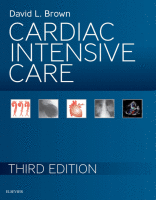Physical Address
304 North Cardinal St.
Dorchester Center, MA 02124

Cardiovascular disease is one of the most common causes of death, accounting for approximately 1 of every 2.9 deaths in the United States and approximately 17 million deaths worldwide each year. Of deaths due to a cardiovascular cause, more than…

Various organ systems within the body are intimately connected to each other and communicate via organ crosstalk, the complex biologic communication and feedback between organ systems mediated by soluble and cellular messengers. In the normal state, this crosstalk helps to…

The range of care covered by cardiac intensive care units (CICUs) has expanded drastically since they were originally developed as coronary care units (CCUs) for the management of acute myocardial infarction (MI) in the early 1960s. In addition to the…

Stress cardiomyopathy (SCM) is a generally reversible acute cardiac syndrome that was originally described in the Japanese population over 30 years ago. Hence, the Japanese term takotsubo (an octopus trap with a narrow neck and round bottom, Fig. 20.1 )…

Definition and Epidemiology Myocarditis is defined as inflammation of the myocardium generally following an injury such as infection, ischemia, or trauma. Approximately 2.5 million cases of myocarditis and cardiomyopathy were diagnosed globally in 2015. Most cases of acute myocarditis present…

Introduction Acute heart failure (AHF) is a clinical syndrome of new or worsening signs and symptoms of heart failure (decompensated), often leading to hospitalization or a visit to the emergency department. Patients with AHF represent a heterogeneous population with high…

Infarction or ischemia of myocardial conduction tissue and/or autonomic imbalance that results in altered conduction through the heart can dramatically alter the presentation, management, and outcomes of patients presenting with an acute myocardial infarction (MI). Immediate recognition of conduction disturbances…

Introduction Cardiac rhythm abnormalities occur in 72% to 95% of patients with acute myocardial infarction (MI) ( Table 16.1 ). Because arrhythmias tend to occur early and before the patient receives medical attention, the incidence may even be higher. Mechanisms…

Early and effective reperfusion of acute myocardial infarction (MI) has resulted in a substantial decline in the incidence of mechanical complications, including free wall rupture, ventricular septal rupture, and papillary muscle rupture resulting in acute mitral regurgitation. However, mechanical complications…

Infarction of the right ventricle is now known to be a common clinical event, occurring in one-third of patients with inferior myocardial infarction (MI). Right ventricular (RV) infarction confers a worse prognosis in patients with inferior wall MI. Because of…